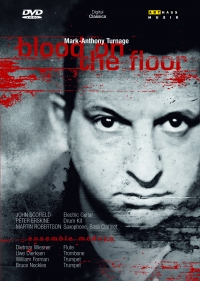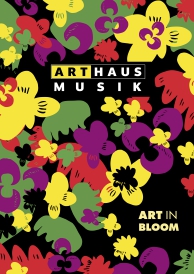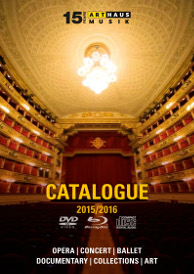
BRAHMS - SYMPHONIES NOS. 1 & 2
Johannes Brahms




Johannes Brahms
BRAHMS - SYMPHONIES NOS. 1 & 2
2004
Orchestra, Chorus:
WDR Sinfonieorchester Köln
Conductor:
Semyon Bychkov
SYMPHONY NO. 1 IN C MINOR, OP. 68 SYMPHONY NO. 2 IN D MAJOR, OP. 73 ''The Symphony'', said Johannes Brahms ''is not something one would trifle with these days''. This comment at least provides us with an initial answer as to why his first symphony was written so late. At the same time Brahms was expressing here the essential mindset of a whole generation of composers after Beethoven who had to cope with the heavy legacy of the “titan”. With his Ninth Symphony Beethoven has brought the genre to a level of perfection, so the received opinion, that could not be surpassed. After all, at the age of 43 Brahms rose to the challenge and, having entered into a productive confrontation with Beethoven he finally arrived at his own style – and his achievement is a work of great originality. Semyon Bychkov’s love and affection towards the music of Brahms - and here especially the symphonies – goes back to the beginnings of his conducting career and grew within the years. Being in symbiotic harmony with his WDR Symphony Orchestra, he shows us the depth and the magnificent density of texture and feeling within these symphonies.
Label:
Arthaus Musik
Genre:
Konzert
Running Time:
156
Picture Format:
16:9
Sound Format:
PCM Stereo / Dolby Digital 5.1 / DTS 5.1
Number of Discs:
1
Region:
0
Languages:
DE, GB
EAN:
0807280124392
UPC:
807280124392

Mark-Anthony Turnage
Mark-Anthony Turnage has rapidly earned a unique position among composers of his generation for his distinctively lyrical compositional voice, his ability to create complex yet always lucid instrumental textures, and his innate dramatic sense. Improvisation and jazz-style melodies have been part of Turnage’s work for many years, but this is(...)

Johannes Brahms
SYMPHONY NO. 3 IN F MAJOR, OP. 90 SYMPHONY NO. 4 IN E MINOR, OP. 98 Far from being conservative, as Brahms often has been referred to, his symphonies show the composer as a groundbreaking pioneer far ahead of his time. He may not have broken dramatic new ground in the same way as his musical colleagues Liszt and Wagner, who invented new(...)









 PDF Download (5,5 MB)
PDF Download (5,5 MB) PDF Download (6,7 MB)
PDF Download (6,7 MB)